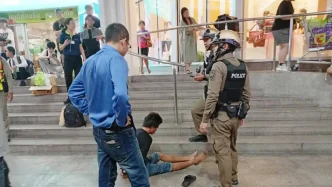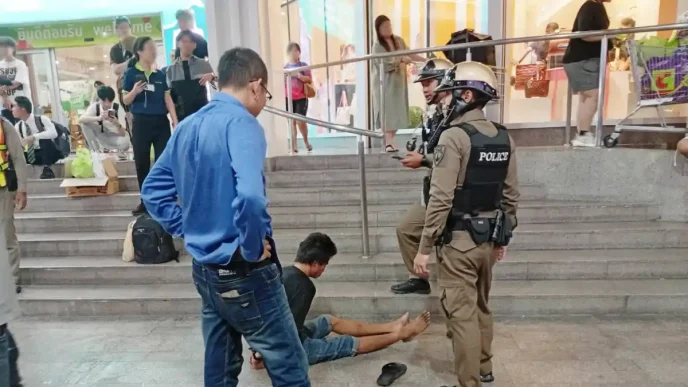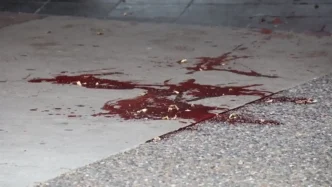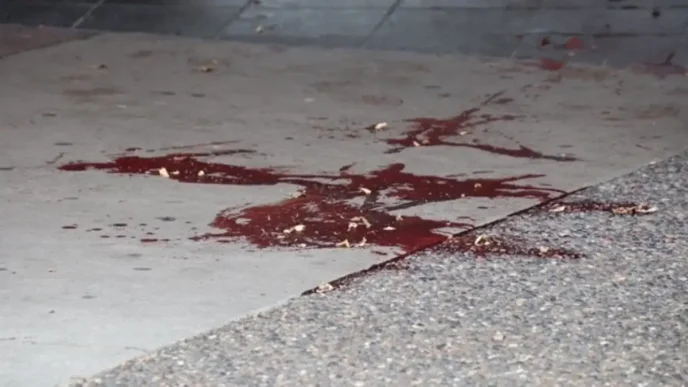In the first half of 2025, Vientiane Capital, the administrative and political heart of Laos, recorded a total of 496 criminal incidents, marking a notable decline from the previous year. This figure, revealed during a high-level meeting at the Vientiane Capital Police Headquarters on August 12, reflects a drop of 106 cases compared to the same period in 2024. While the reduction signals progress in local security efforts, the nature of the crimes and the ongoing challenges—particularly drug-related offenses—highlight the complexities of maintaining safety in a rapidly urbanizing city.
A Decline in Crime, Yet Challenges Persist
The latest crime statistics, presented by Deputy Chief of the Vientiane Capital Police Headquarters Kong Kanlongsuk, paint a mixed picture of security in the capital. The 496 reported cases represent a range of offenses, from petty theft to more serious crimes. Notably, authorities managed to resolve 510 cases during this period—an intriguing figure that exceeds the number of reported incidents, likely due to the clearance of backlog cases from prior periods. This effort led to the arrest of 792 individuals, including 23 foreign nationals, underscoring the diverse nature of criminal activity in the city.
Despite a decline in crime, journalists from Broadsheet Asia were repeatedly offered—and harassed—by self-described Nigerian crime gangs. When asked “Why do you sell drugs here in Vientiane?” one of the gang members replied “We do business with Chinese, we give them what they want and they give us what we need.” When asked whether there was any Police involvement one gang member replied “We pay the Police to leave us alone but they don’t always leave us (alone)”, before being told by another gang member to stop talking to our journalists.
Drug-related offenses remain a dominant concern, accounting for a significant portion of the resolved cases. Of the total, 377 drug cases were addressed, a decrease of 51 compared to the latter half of 2024. While this reduction is a positive sign, the persistence of drug crimes points to deeper systemic issues, including cross-border trafficking networks that exploit Laos’ position as a transit hub in the Golden Triangle region, where Thailand, Myanmar, and Laos converge. The national anti-drug agenda, emphasized during the meeting, remains a priority for authorities as they grapple with both supply and demand challenges.
Strengthening Local Governance and Security
Beyond crime statistics, the August 12 meeting also served as a platform to review broader efforts in political and security infrastructure. A key achievement highlighted was the completion of a citywide census, which registered 180,188 families, totaling a population of 875,448 in Vientiane Capital. This comprehensive data collection has already led to the creation of electronic records for 94,199 individuals, a step toward modernizing population management and enhancing administrative efficiency.
Such initiatives are critical in a city like Vientiane, where rapid urbanization and population growth place increasing pressure on public services and security frameworks. Authorities stressed the importance of monitoring population movements, particularly in light of transient communities and migrant workers who contribute to the city’s dynamic demographic profile. Strengthening village-level security agreements was also flagged as a priority, aiming to foster community-based vigilance and cooperation with law enforcement.
Preparing for National Milestones
The timing of these security reviews is not coincidental. With major national events on the horizon, including the 3rd Party Congress and the 12th National Games, authorities are under pressure to secure key areas of the capital. These events, which draw significant domestic and international attention, serve as both a showcase of national pride and a potential target for disruptions. Ensuring stability in Vientiane during these periods is paramount, as any lapses in security could have far-reaching political and reputational consequences.
The focus on securing the city ahead of these events also reflects broader national priorities under the Lao People’s Revolutionary Party (LPRP), which continues to guide policy on public safety and political stability. The emphasis on building political foundations, as discussed in the meeting, underscores the intertwining of security measures with ideological goals, a hallmark of governance in Laos.
Drug Enforcement: A Persistent Battle
Returning to the issue of drug-related crime, the 377 resolved cases in the first half of 2025 highlight the ongoing battle against narcotics in Vientiane. Laos’ geographic position makes it a critical node in regional drug trafficking routes, with methamphetamine and other substances often passing through en route to larger markets in Thailand and beyond. Local consumption, too, remains a concern, with authorities noting the social and economic toll of addiction on communities.
Efforts to combat this issue are multifaceted, involving not only law enforcement crackdowns but also community safety initiatives aimed at prevention and rehabilitation. The decline in drug cases compared to 2024 suggests that these strategies may be gaining traction, though the scale of the problem necessitates sustained investment and international cooperation. Neighboring countries, particularly Thailand and Vietnam, have faced similar challenges, and regional frameworks like the ASEAN Narcotics Cooperation Center provide a platform for shared intelligence and resources.
Community Safety and Urban Growth
The broader context of Vientiane’s security landscape cannot be divorced from its urban development trajectory. As the capital grows, attracting both domestic migrants and foreign investment, the strain on infrastructure and social cohesion becomes more pronounced. Informal settlements on the city’s outskirts, coupled with economic disparities, often correlate with higher incidences of petty crime and social unrest. Addressing these root causes requires not just policing but also inclusive urban planning and social welfare programs.
The census data, now partially digitized, offers a valuable tool for policymakers to identify vulnerable populations and allocate resources effectively. For instance, targeted interventions in densely populated or economically disadvantaged districts could preemptively address crime hotspots. At the village level, security agreements empower local leaders to act as first responders, fostering a sense of ownership over community safety.
Regional Comparisons and Lessons
Comparing Vientiane’s crime trends with those of other Southeast Asian capitals provides additional context. In neighboring Hanoi, Vietnam, authorities have similarly grappled with drug trafficking and urban crime, though on a larger scale due to the city’s size. According to reports from regional outlets, Hanoi has seen success with community policing models, an approach that Vientiane could adapt to its smaller, more close-knit urban fabric. Meanwhile, in Bangkok, Thailand, a sprawling metropolis, crime statistics often reflect the challenges of managing a much larger transient population, with figures dwarfing those of Vientiane.
Laos’ capital, while smaller, faces unique challenges due to its role as both a political center and a cultural hub. The balance between maintaining security and preserving the city’s reputation as a peaceful, tourist-friendly destination is delicate. High-profile events like the National Games amplify this tension, as authorities must project stability while addressing underlying issues like drug crime.
Looking Ahead: Security in a Changing Landscape
As Vientiane navigates the second half of 2025, the trajectory of its security efforts will likely be shaped by both internal reforms and external pressures. The decline in overall crime is a promising start, but the persistence of drug-related offenses signals that much work remains. Strengthening local governance, as evidenced by the census and village-level initiatives, provides a foundation for long-term stability, yet these measures must be matched by resources and political will.
The upcoming national events will serve as a litmus test for the city’s preparedness. Beyond the immediate focus on security, they offer an opportunity to showcase progress in areas like population management and community engagement. For residents of Vientiane, the hope is that these efforts translate into tangible improvements in daily safety and quality of life.
As Laos continues to modernize, the interplay between urban growth, crime, and governance will remain a defining challenge. Whether Vientiane can sustain its downward trend in criminal incidents while addressing systemic issues like drug trafficking is a question that looms large over the capital’s future.















